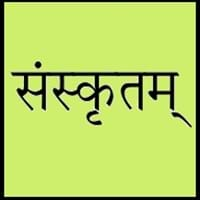Sanskrit vs Cebuano
Countries
India
Philippines
National Language
India
Philippines
Second Language
Not spoken in any of the countries
Philippines
Speaking Continents
Asia
Asia
Minority Language
Not spoken in any of the countries
Not spoken in any of the countries
Regulated By
Not Available
Visayan Academy of Arts and Letters
Interesting Facts
- Sanskrit language has highest number of vocabularies than any other language.
- Sanskrit Language has proved to help in speech therapy, also it increases concentration and helps to learn maths and science better.
- About one-fifth of the population of the philippines speak cebuano and are second largest ethnolinguistic group in the country.
- Cebuano contains many words of Spanish origin.
Similar To
Old German Language
Hiligaynon Language
Derived From
Prakrit Language
Island of Cebu
Alphabets in
Sanskrit-Alphabets.jpg#200
Cebuano-Alphabets.jpg#200
Writing Direction
Left-To-Right, Horizontal
Not Available
Hello
नमस्कारः (namaskāraḥ)
Hoy
Thank You
धन्यवादाः (dhanyawādāh)
Salamat
How Are You?
कथमस्ति भवान् (kathamasti bhawān)
Kumusta man ka?
Good Night
शुभरात्री (shubharātrī)
Maayong Gabii
Good Evening
शुभः सायंकालः
Maayong Gabii
Good Afternoon
शुभ दुपार
Maayong Hapon
Good Morning
सुप्रभातम् (suprabhātam)
Maayong Buntag
Please
कृपया (kripayā)
Palihug
Sorry
कृपया क्षम्यताम् (kripayā kshamyatām)
Ikasubo ko
Bye
पुनः मिलामः(punah milamah)
Babay
I Love You
त्वामनुरजामि (twāmanurajāmi)
Gihigugma ko ikaw
Excuse Me
कृपया क्षम्यताम् (kripayā kshamyatām)
Ekskyus mi
Dialect 1
Not present
Boholano
Where They Speak
Not Available
Bohol
Dialect 2
Not present
Southern Kana
Where They Speak
Not Available
southern Leyte
Dialect 3
Not present
North Kana
Where They Speak
Not Available
northern part of Leyte
How Many People Speak?
Not Available
Speaking Population
Not Available
Second Language Speakers
Not Available
Native Name
संस्कृतम् (saṃskṛtam)
Visayan
Alternative Names
Not Available
Binisaya, Bisayan, Sebuano, Sugbuanon, Sugbuhanon, Visayan
French Name
sanskrit
cebuano
German Name
Sanskrit
Cebuano
Pronunciation
[səmskr̩t̪əm]
Not Available
Ethnicity
Not Available
Cebuano people
Origin
2000 B.C.
16th century
Language Family
Indo-European Family
Austronesian Family
Subgroup
Indo-Iranian
Not Available
Branch
Indic
Not Available
Early Forms
Vedic Sanskrit
No early forms
Standard Forms
Sanskrit
Standard Cebuano
Language Position
Not Available
Signed Forms
Not Available
Not Available
Scope
Individual
Individual
ISO 639 1
sa
No data Available
ISO 639 6
Not Available
Not Available
Glottocode
sans1269
cebu1242
Linguasphere
No data available
No data Available
Language Type
Ancient
Living
Language Linguistic Typology
Subject-Object-Verb
Verb-Subject-Object
Language Morphological Typology
Synthetic
Not Available
Sanskrit and Cebuano Language History
Comparison of Sanskrit vs Cebuano language history gives us differences between origin of Sanskrit and Cebuano language. History of Sanskrit language states that this language originated in 2000 B.C. whereas history of Cebuano language states that this language originated in 16th century. Family of the language also forms a part of history of that language. More on language families of these languages can be found out on Sanskrit and Cebuano Language History.
Sanskrit and Cebuano Greetings
People around the world use different languages to interact with each other. Even if we cannot communicate fluently in any language, it will always be beneficial to know about some of the common greetings or phrases from that language. This is where Sanskrit and Cebuano greetings helps you to understand basic phrases in Sanskrit and Cebuano language. Sanskrit word for "Hello" is नमस्कारः (namaskāraḥ) or Cebuano word for "Thank You" is Salamat. Find more of such common Sanskrit Greetings and Cebuano Greetings. These greetings will help you to be more confident when conversing with natives that speak these languages.
Sanskrit vs Cebuano Difficulty
The Sanskrit vs Cebuano difficulty level basically depends on the number of Sanskrit Alphabets and Cebuano Alphabets. Also the number of vowels and consonants in the language plays an important role in deciding the difficulty level of that language. The important points to be considered when we compare Sanskrit and Cebuano are the origin, speaking countries, language family, different greetings, speaking population of these languages. Want to know in Sanskrit and Cebuano, which language is harder to learn? Time required to learn Sanskrit is 20 weeks while to learn Cebuano time required is 3 weeks.





